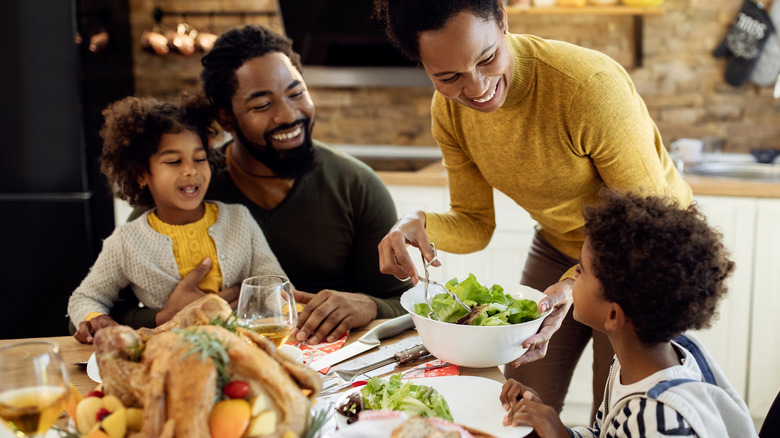The Best Time Of Day To Eat Dinner
When do you typically eat dinner? Everybody has a different culinary routine. Some people eat dinner at 5 p.m., while others eat at 8 p.m. or even later. These differences are rooted in preferences and personal schedules. A person working a 9-5 schedule with an hour-long commute probably wouldn't be able to eat dinner at 5 p.m., but would they want to?
The idea of eating dinner at 5 p.m. is seen as absurd by many people, but it may have benefits. Wilfred R. Cameron Wellness Center advises to eat lunch between 10 a.m. and 2 p.m. when your metabolism is at its peak, and to eat dinner about 4-5 hours after that. Eating dinner between 5 p.m. and 6 p.m. allows you to take advantage of the final stage of your heightened metabolic rate, and allows enough time so that when you go to bed, your body no longer needs to focus on digestion and can instead focus on resting.
Dinnertime may affect a variety of bodily functions
Eating a large meal shortly before bed can be problematic. According to Greatist, lying down in bed can make it more difficult for food to make its way through your esophagus. This can increase your likelihood of developing acid reflux and heartburn.
A late dinnertime can also contribute to weight gain, partly because it is associated with greater calorie consumption the following day (per Appetite). Greatist theorizes that this is because it can make you less likely to eat breakfast in the morning, which may cause you to consume more calories later in the day. In addition, one study from 2014 found that people burned calories less effectively when they ate later in the day (per International Journal of Obesity).
All in all, you should ideally eat dinner at least two hours before you go to sleep. However, if your schedule renders this impossible, you don't have to skip dinner. Instead, choose a nutrient-rich meal to end your day. Your meal choice is just as important as your meal time, if not more (per Healthline).


